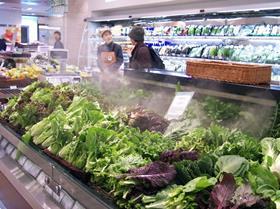
A wave of cold weather across South Korea has hit the country’s fruit and vegetable production, putting further pressure on food inflation ahead of the Chinese New Year festive period.
A drop in winter temperatures over the last few weeks has reportedly slowed crop growth and raised heating costs for greenhouse operators, which contribute the majority of South Korea’s fresh produce over winter.
“Oil consumption of the greenhouses stood at around 15,000l last year, but this year, due to the cold weather amid rising oil prices, consumption reached nearly 30,000l,” tomato grower Park Dong-il told the country’s Arirang News.
Average food prices rose 1.6 per cent month-on-month in December on the back of low production, according to local media, raising concerns of food price inflation, which has already hit a 16 year high.
In bad news for the Korean staple kimchi, cabbage prices rose 80 per cent in December, garlic prices grew by 52 per cent and radish prices rose 98 per cent, according to figures from the country’s consumer price index bureau.
South Korea’s government yesterday pledged to combat rising food prices by increasing supplies of 16 agricultural and fish products in the run up to the Chinese New Year period beginning late January, reported Reuters.
“The measure is aimed at keeping prices stable, as demand is increasing for those products ahead of the New Year holiday, and is also aimed at taming expectations of price volatility,” said Lee Yong-jae, a director with the Ministry of Strategy and Finance.






No comments yet